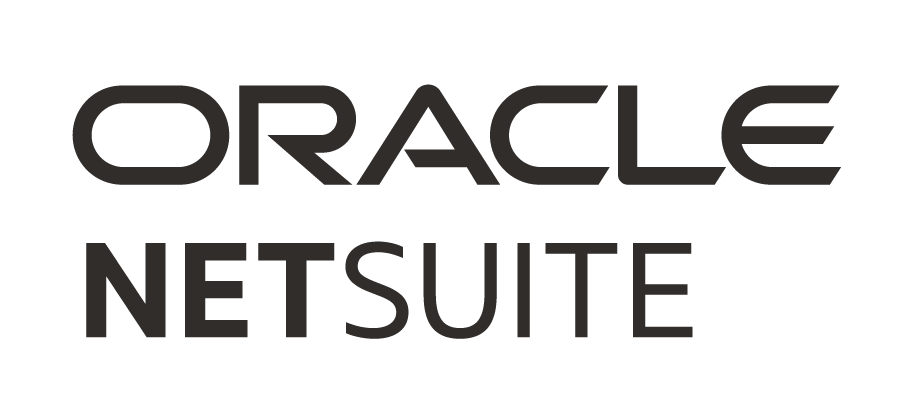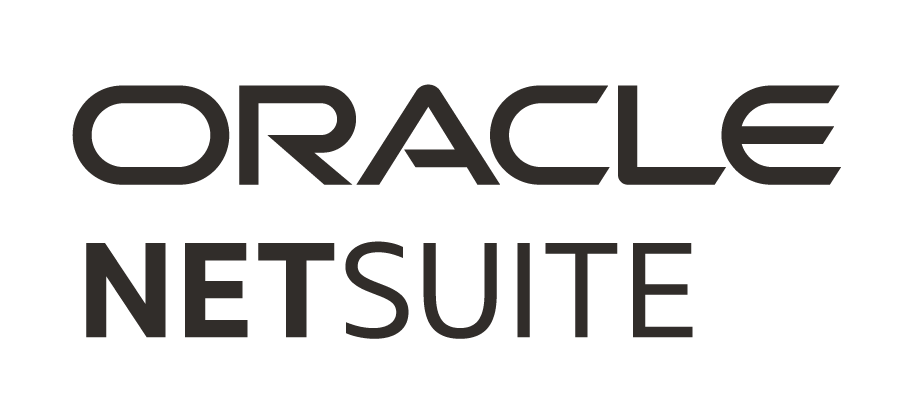What Is NetSuite?
NetSuite stands out as a pioneering software company, offering a cutting-edge cloud-based business management platform trusted by over 37,000 thriving organizations globally. This revolutionary platform includes a suite of applications designed to empower companies, providing insights into business performance and unlocking significant efficiency gains and cost savings.
At the core of NetSuite's offering is its ERP system, which effectively manages fundamental functions such as finance and accounting, inventory, orders, and procurement. Going beyond the basics, customers can seamlessly integrate additional options, including CRM for sales, service, and marketing automation, HR for personnel records, performance management, and payroll, professional services automation (PSA) for project planning and tracking, and omnichannel commerce for both online and in-store sales. Notably, all these modules share a unified database, ensuring real-time updates and accessibility for authorized users across various business functions.
The advantage of this integrated approach is profound – leaders gain a comprehensive, real-time, 360° view of their business. This bird's-eye view enables them to identify successful processes and departments while pinpointing areas that may need improvement.
NetSuite operates on the software-as-a-service (SaaS) model, providing customers with subscription-based access to cutting-edge technology. Crucially, this subscription includes not just access to the technology but also alleviates the burden of managing infrastructure and system maintenance. Forget about the complexities of setting up servers, installing software, or dealing with patches and upgrades – Oracle NetSuite takes care of it all with two new software updates annually.
By eliminating the hassles associated with on-premises solutions, NetSuite not only saves costs but also liberates employees to focus on the company's core mission and better serve customers. The SaaS model also offers scalability, allowing businesses to effortlessly add functionalities as needed without concerns about infrastructure or staffing resources. For instance, a B2B manufacturer can seamlessly integrate NetSuite's e-commerce module when deciding to venture into online sales.
By the way, you can also opt for these leading CRM systems:
-Mar-27-2024-11-01-24-2022-AM.png?width=300&height=150&name=%D0%94%D0%B8%D0%B7%D0%B0%D0%B9%D0%BD%20%D0%B1%D0%B5%D0%B7%20%D0%BD%D0%B0%D0%B7%D0%B2%D0%B8%20(5)-Mar-27-2024-11-01-24-2022-AM.png)
monday sales CRM
Let monday sales CRM do the grunt work while your team stays focused on high-level tasks, such as creative projects, business strategy, and relationship building.

Capsule
Capsule is a cloud-based CRM platform that helps businesses build relationships with customers. It enables users to store contacts, track sales opportunities, automate workflows and manage projects.
-Mar-27-2024-11-21-46-3665-AM.png)
Zoho
It is a web-based email marketing management service for small and medium businesses. It automates the entire marketing process - from managing your email marketing campaign to maintaining mailing lists.
-Mar-27-2024-11-11-30-6271-AM.png)
Salesforce
Salesforce is an industry leader known for its mammoth feature set and endless customization options. The platform can adapt to any industry, from manufacturing to insurance.
5 Key Features That Set NetSuite Apart
1. Unified Business View
NetSuite stands out by providing a comprehensive business management platform where companies can seamlessly integrate finance, supply chain, manufacturing, HR, and e-commerce in one unified system. Unlike using disparate software for each function, NetSuite offers employees a single platform login, allowing them to effortlessly monitor the status and performance of various operational aspects with just a few clicks. This unified approach enhances operational efficiency and ensures a cohesive view of the entire business.
2. Native Integrations
NetSuite's strength lies in its native integrations, where all applications feed information into and pull it from a central database. This eliminates the need for unreliable third-party integrations, supporting real-time updates across the platform. The natively integrated modules provide a consistent user interface throughout, reducing training time and enabling users to complete multi-step processes like order-to-cash and procure-to-pay without redundant data entry or exports.
3. True Cloud
NetSuite was purpose-built for the cloud, distinguishing it from many ERP systems labeled as "cloud" solutions that are essentially on-premises software retrofitted for internet access. NetSuite is a multi-tenant, vendor-managed cloud solution designed to offer limitless scalability. This approach ensures version lock, slow upgrades, and lack of scalability are non-issues, providing businesses with a true cloud experience tailored for growth.
4. Deep Reporting Capabilities
Leveraging the wealth of data flowing into the platform, NetSuite boasts extensive reporting capabilities. Users can generate reports on various metrics, thanks to the built-in reporting tools. Additionally, role-based dashboards offer quick access to relevant information for employees, managers, and executives, empowering them to make informed decisions based on real-time insights.
5. Built-in Flexibility
NetSuite's versatility shines through its ability to adapt to the diverse requirements of different industries. Whether you're a multinational corporation with multiple subsidiaries or a startup shaping its first product, NetSuite's built-in flexibility allows customization to align with your unique processes and corporate structure. SuiteCloud apps and tools further enhance this adaptability, making NetSuite a powerful solution for businesses across various sectors.
In essence, NetSuite goes beyond being just a cloud ERP solution; it's a unified, adaptable, and scalable platform that empowers businesses to thrive in an ever-evolving landscape.
[Related article: What is the Difference Between ERP and CRM?]

9 Benefits of Using NetSuite
1. All-in-One Efficiency
NetSuite stands as an all-encompassing solution, consolidating diverse business management capabilities within a singular system. From accounting and CRM to e-commerce and inventory management, businesses can streamline operations efficiently. The platform's accessibility from anywhere, coupled with server maintenance-free convenience, ensures a secure and reliable solution that grows in tandem with your business.
2. Dynamic Scalability
NetSuite's innate scalability allows businesses to effortlessly adapt to changing needs, making it an ideal choice for those experiencing demand fluctuations or undergoing rapid growth. The system can seamlessly scale up or down, ensuring optimal performance regardless of evolving circumstances.
3. Tailored Customization
With numerous development options and an extensive community of third-party developers crafting diverse "bundles," NetSuite offers unparalleled customization. Businesses can tailor the platform to align with specific requirements, fostering flexibility and adaptability.
4. Integrability at its Core
NetSuite's versatile nature extends to its ability to seamlessly integrate with a myriad of applications, databases, and both public and private APIs. This integration prowess ensures a connected ecosystem, facilitating smooth data flow across diverse platforms.
5. User-Friendly Interface
NetSuite boasts a user-friendly interface designed for effortless navigation, minimizing the learning curve for employees. The intuitive design enhances productivity by ensuring a smooth and efficient user experience.
6. Mobile Accessibility
NetSuite's mobile accessibility empowers employees to stay connected and work remotely. The platform's compatibility with mobile devices ensures seamless access, fostering flexibility in today's dynamic work environments.
7. Advanced Reporting and Analytics
NetSuite goes beyond basic functionalities, providing advanced reporting and analytics capabilities. Businesses can track key performance indicators, discern trends and patterns, and make well-informed decisions based on comprehensive insights garnered from the platform.
8. Industry-Specific Functionality
NetSuite recognizes the unique needs of various sectors and offers industry-specific functionality. Tailored solutions for industries like retail, manufacturing, and healthcare ensure that businesses receive targeted features aligned with their specific requirements.
9. Intuitive UI and Dashboard Setup
NetSuite's user interface, complemented by an elegantly designed dashboard setup, provides administrators with critical information in a visually optimized manner. This ensures that key data is readily available and easily comprehensible, enhancing decision-making processes.
In essence, NetSuite emerges as a holistic solution, addressing the multifaceted needs of businesses while embodying flexibility, scalability, and a user-centric design that propels operational efficiency to new heights.
NetSuite Products Overview
NetSuite stands out for its adaptability, catering to the unique requirements of diverse businesses through an extensive range of modules dedicated to critical functions and processes.
Finance Module:
- Financial Management: NetSuite automates key bookkeeping tasks, updating the general ledger, tracking accounts receivable and payable, and facilitating invoice submissions. This module accelerates monthly closings and simplifies the creation of essential financial reports for regulatory compliance. It adeptly handles complex revenue recognition standards and seamlessly consolidates financial statements from subsidiaries, including those in different countries, with real-time currency conversion.
- Global Business Management: NetSuite OneWorld empowers multinational and multi-subsidiary enterprises to manage their entire operations within a unified system. Addressing the diverse needs of global businesses, it supports multiple currencies, languages, tax laws, and reporting requirements. OneWorld offers financial roll-ups at regional, country, and global levels, providing decision-makers with a customizable view of the business.
- Planning and Budgeting: NetSuite Planning and Budgeting equips business leaders with comprehensive tools to create detailed budgets and forecasts at both departmental and companywide levels. Financial analysts benefit from access to statistical models, allowing them to run scenario-based projections for revenue, expenses, and more, based on various potential outcomes.
- Billing: NetSuite SuiteBilling streamlines invoicing and billing processes. Supporting transaction, subscription, and usage-based billing models, it simplifies financial management for modern businesses. SuiteBilling ensures revenue recording compliance with prevailing standards, offering flexibility and promoting profitability.
Operations:
- Inventory Management: NetSuite Inventory Management offers a unified view of inventory across all channels and locations, ensuring real-time updates. It leverages sales data to establish reorder points, notifying purchasing managers of timely replenishment orders. The module efficiently manages cycle counts, contributing to maintaining optimal stock levels. This proactive approach minimizes out-of-stock and excess inventory, fostering improved cash flow and profitability.
- Order Management: NetSuite Order Management oversees the entire order lifecycle, from placement to delivery. Automation streamlines order processing, enabling fulfillment across channels based on predefined rules. This results in faster, more accurate fulfillment, reducing shipping costs and enhancing on-time delivery rates and customer satisfaction.
- Procurement: NetSuite Procurement optimizes the end-to-end procure-to-pay process, saving businesses time and resources. It facilitates the management of approved vendors, automated purchase orders, and performance monitoring. The module supports vendor self-service and expedites payments, contributing to a streamlined procurement process.
- Warehouse Management System (WMS): NetSuite WMS extends inventory management capabilities with features such as putaway, order picking, barcode scanning, and returns authorization. Operating on mobile devices, it guides warehouse employees through receiving, picking, and cycle counting. The application provides insights into warehouse activity, enhancing efficiency and expediting order fulfillment.
- Manufacturing: NetSuite Manufacturing caters to companies involved in product manufacturing or assembly. The module assists in production planning, shop-floor management, and production monitoring. It ensures optimal supply and part management, allowing managers to build, release, and track work orders. This visibility enhances quality, reduces costs, and improves on-time delivery.
- Demand Planning: NetSuite Demand Planning aids in forecasting future demand based on historical data, existing opportunities, or imported sales forecasts. Utilizing methods such as moving average, linear regression, or seasonal average, the module supports supply planning by automatically generating purchase and work orders aligned with the demand plan.
Customers:
Customer Relationship Management (CRM):- 360-Degree Customer View: NetSuite CRM offers a holistic view of customers, facilitating a comprehensive understanding of their interactions and needs.
- Sales Force Automation: Streamlined lead management, quote handling, and sales processes accelerate the lead-to-cash cycle, enhancing overall sales efficiency.
- Forecasting Tools: Leveraging sales data, forecasting tools contribute to more accurate predictions of future sales, empowering businesses with informed decision-making.
- Unified Customer Data: The CRM application consolidates essential data, including sales history and active support cases, providing a centralized location for comprehensive customer insights.
- Marketing Automation: Integrated marketing automation tools assist in managing campaigns and segmenting customers, enabling targeted and relevant messaging for more effective marketing strategies.
[Related article: Top 12 CRM Functionalities and Features List]
Commerce:- Omnichannel Shopping Experiences: NetSuite SuiteCommerce empowers retailers, distributors, and manufacturers to create exceptional omnichannel shopping experiences.
- Mobile-Friendly E-commerce Sites: Companies can effortlessly launch and manage mobile-friendly e-commerce sites using user-friendly tools provided by the application.
- Unified Transactions: SuiteCommerce unifies transactions and visits for multi-channel, multi-location businesses. Integration with SuiteCommerce InStore point-of-sale application ensures a seamless order flow, with automatic synchronization of payment and customer information into the ERP.
- Enhanced Customer Experiences: The result is an improved front-end experience for customers, complemented by a streamlined back-end order flow, enhancing overall customer satisfaction.
Additional Capabilities
SuiteApps:- Versatile Catalog: SuiteApps, offered by Oracle NetSuite and its partners, constitute a diverse catalog of applications that expand and enhance the capabilities of NetSuite instances.
- Industry-Specific Solutions: SuiteApps cater to various industries, providing additional functionality and seamless integrations with other Software as a Service (SaaS) solutions.
- Comprehensive Integration: Most SuiteApps seamlessly integrate within NetSuite, ensuring a unified and efficient business management experience.
- Automated Payroll Processes: NetSuite Payroll automates the intricate calculations related to earnings, deductions, taxes, bonuses, and paid time off.
- Tax Compliance: The module ensures compliance with varying tax regulations across the United States, simplifying the payroll tax filing process.
- Direct Deposit and Tax Form Generation: Businesses can execute employee payments via direct deposit or check, and generate tax forms such as W-2s and 1099s effortlessly.
- Time Efficiency: NetSuite Payroll reduces the time spent on payroll processing, contributing to increased efficiency and accuracy.
- Centralized HR Data: SuitePeople seamlessly integrates human resources data throughout the NetSuite suite, serving as a comprehensive HR system.
- Onboarding and Talent Management: It facilitates onboarding processes, tracks promotions, and manages compensation changes, contributing to effective talent management.
- Employee Self-Service: SuitePeople provides employees with self-service tools for tasks such as time-off requests, directory viewing, and public recognition of colleagues.
- Performance Reviews: Managers can conduct and track performance reviews, enhancing overall performance management within the organization.
- Tailored for Services Companies: NetSuite PSA solutions are designed specifically for services companies or divisions within product companies.
- Comprehensive Project Management: The system provides robust project and resource management, billing, time and expense management, and project accounting capabilities.
- Optimized Resource Utilization: PSA solutions like OpenAir automate customer billing based on project milestones or predefined schedules, ensuring optimal resource utilization and project profitability.
- Data-Driven Insights: SuiteAnalytics leverages the wealth of data within the NetSuite platform, offering in-depth insights from summary to transaction levels.
- User-Friendly Interface: The SuiteAnalytics workbook empowers users with custom filters, visualizations, and a user-friendly interface for building on saved searches and reports.
- Intuitive Tools: Simple drag-and-drop tools eliminate the need for coding or complex queries, enabling employees to get answers to critical questions effortlessly.
NetSuite's Versatility Across Industries and Business Types
Your Robust CRM Choice

4.3
NetSuite stands out as the premier choice for cloud Enterprise Resource Planning (ERP), accommodating a diverse range of businesses, from budding startups to renowned enterprises. Its widespread adoption spans both product- and service-oriented enterprises, catering to those engaging with business-to-business (B2B), business-to-consumer (B2C), or a combination of both models.
With a user base surpassing 37,000, NetSuite serves a multitude of industries, including:
- Advertising and Digital Marketing
- Apparel, Footwear and Accessories
- Campus Stores
- Consulting
- Education
- Energy
- Financial Services
- Food and Beverage
- Health and Beauty
- IT Services
- Manufacturing
- Media and Publishing
- Nonprofit
- Professional Services
- Restaurants and Hospitality
- Retail
- Software and Technology
- Transportation and Logistics
- Wholesale Distribution
NetSuite accommodates over 190 currencies, ensuring businesses can operate on a global scale with ease. With support for 27 languages, NetSuite enables effective communication and system interaction for international teams. It also automates tax compliance processes in more than 100 countries, alleviating a significant burden for multinational businesses.
NetSuite's adaptability and extensive feature set make it the ERP solution of choice for businesses worldwide, regardless of industry, size, or the complexity of their operational models.
NetSuite Pricing Model
Companies opting for NetSuite engage in an annual subscription model, departing from the traditional large, upfront fees associated with perpetual licenses for on-premises systems. The NetSuite annual license fee comprises three primary components: the core platform, optional modules, and the number of users.
Included in the core NetSuite platform are fundamental capabilities such as accounting, inventory management, order management, and tax management. NetSuite adopts a modular pricing structure, ensuring that businesses pay only for the specific modules they require, fostering scalability. This flexibility allows for easy activation of new modules and the addition of users, aligning with the dynamic needs of a growing business—a distinct advantage of cloud-based software.
Given the unique capabilities of each module, license costs vary accordingly. Additionally, an initial setup incurs a one-time implementation fee. For a more tailored and detailed quote tailored to your business needs or to explore NetSuite further, a complimentary consultation can be scheduled.
The popularity of NetSuite among business owners and leaders is grounded in its proven reliability. Functioning as a centralized platform, NetSuite empowers organizations across diverse sectors to grow and achieve their objectives. The consolidation of critical business information in a single system facilitates informed decision-making, enabling leaders to address issues proactively and prevent major disruptions.
NetSuite Support Options
For businesses utilizing NetSuite, a variety of support options are available to ensure a seamless experience. These options cater to diverse needs and preferences, offering a range of features to enhance user satisfaction:
Basic Support:
- Basic support provides access to online resources, including documentation, FAQs, and knowledge base articles.
- Users benefit from a Support Community Group and have the option of phone support for immediate assistance.
Premium Support:
- Building upon basic support, premium support offers priority queueing, weekend support, upgrade notices, and specialized Commerce support.
Advanced Customer Support (ACS):
- ACS is a premium offering designed to provide users with additional resources and support options for maximizing software utilization and issue resolution.
- Features include priority phone support for expedited assistance, a dedicated account manager for personalized guidance, access to specialized resources like technical account managers, and customized training to align software usage with specific business objectives.
Partner Support:
- Businesses have the option to choose NetSuite partners for tailored support, with a wide range of options offered by various partners.
Selecting the right support option depends on the specific needs and priorities of the business. Basic support ensures essential assistance, while premium support adds priority and specialized features. ACS takes support to the next level with dedicated resources and customized training. For those seeking a more tailored approach, partnering with NetSuite partners can provide specialized and targeted support options.
Ultimately, the robust support ecosystem ensures that NetSuite users can access the assistance they need, allowing them to optimize their use of the software and overcome any challenges that may arise.
Bottom Line
In the realm of cloud-based ERP solutions, NetSuite stands out as a trailblazer, commanding trust from over 37,000 organizations globally. Its innovative platform, rooted in a suite of applications, serves as a catalyst for business empowerment, delivering profound insights, enhanced efficiency, and substantial cost savings.
At its core, NetSuite's ERP system orchestrates fundamental functions—from finance and accounting to inventory, orders, and procurement. The platform extends beyond the conventional, seamlessly integrating modules like CRM, HR, professional services automation, and omnichannel commerce. All components harmonize within a unified database, facilitating real-time updates and access across diverse business functions.
NetSuite transcends being a mere cloud ERP solution; it is a unified, adaptable, and scalable platform empowering businesses to thrive in an ever-evolving landscape.







